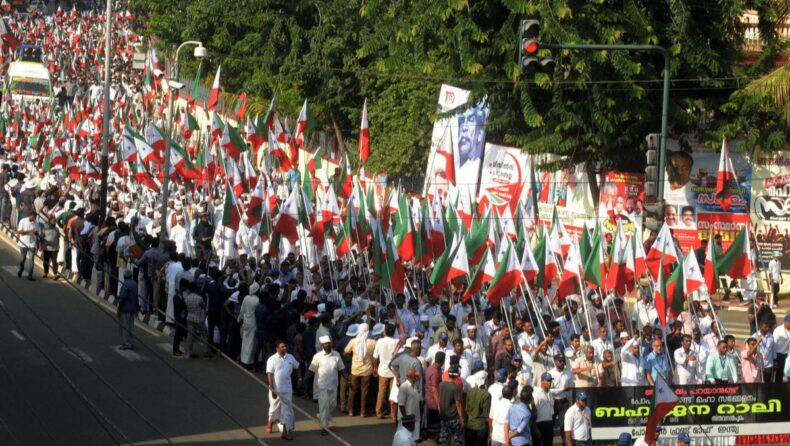On Wednesday, the Central government banned the Popular Front of India (PFI) for five years due to its claimed ties to international terror organizations and support of terrorism.
The PFI, which is now prohibited from operating for the next five years, had been on the government’s radar for its suspected role in violent protests in several parts of the nation.
According to reports, more than 250 individuals with ties to the group were arrested during raids conducted on September 22 and September 27.
The searches were conducted by the National Investigation Agency (NIA), India’s leading anti-terror agency, and the Enforcement Directorate (ED), which aims to tackle financial crimes.
During the searches, the NIA reportedly seized “incriminating documents, cash, sharp-edged weapons, and several digital gadgets.”
On what grounds did the government ban PFI?
Under the Unlawful Activities (Prevention) Act (UAPA), 1967, the Ministry of Home Affairs (MHA) enforced a five-year ban on the PFI and its associated organizations, including the Rehab India Foundation (RIF) and Campus Front of India.
In addition, they are accused of engaging in “unlawful acts” that are “prejudicial to the integrity, sovereignty, and security of the country”.
According to the government order, some of the founding members of the PFI are the leaders of the Students Islamic Movement of India (SIMI), whose activities have also been prohibited. Both PFI and Jamat-ul Mujahideen Bangladesh (JMB) are now prohibited organizations.
The Central government also stated that there have been multiple cases of international ties between PFI with the Islamic State of Iraq and Syria (ISIS) or Islamic State (IS).
“The PFI and its associates operate openly as a socio-economic, educational and political organization but, they have been trying to pursue a secret agenda to radicalize a specific portion of the society working towards weakening the concept of democracy,” the federal home ministry stated
The Popular Front of India stated the initial raid in which it called the action against it “witch hunting” and accused the NIA of making false charges to create “an atmosphere of terror.“
What exactly is PFI?
The PFI, which was founded in 2006, identifies itself as “a non-governmental social organization whose stated mission is to work for the poor and disadvantaged in the country and to fight injustice and exploitation.”
National Development Front (NDF), a controversial organization founded in Kerala a few years after the Babri mosque was demolished in 1992, combined with two other southern organizations to form the PFI. Over the following decades, it expanded its base as other Indian organizations merged with it.
The PFI, which has a major presence in Kerala and Karnataka, is currently active in more than 20 Indian states and claims to have “hundreds of thousands” of cadre supporters.
Why is PFI controversial?
According to their website’s goal statement, the PFI seeks to construct an “egalitarian society in which everyone has freedom, justice, and a sense of security.” It states that adjustments must be made to economic policy so that Dalits (formerly untouchables), tribal people, and minorities can obtain their rights.
However, the government has filed numerous accusations against the organization and its members, including “sedition, creating hostility amongst different social groups, and attempting to destabilize India.”
Additionally, investigators have connected the PFI to several cases of political violence.
Members of the PFI have been linked to terrorism and the deaths of multiple people, including Sanjith (Kerala, November 2021), V-Ramalingam (Tamil Nadu, 2019), Nandu (Kerala, 2021), Abhimanyu (Kerala, 2018), Bibin (Kerala, 2017), Sharath (Kamataka, 2017), R.Rudresh (Kamataka, 2016), Praveen Puyari (Karnataka, 2016), Sasi Kumar (Tamil Nadu, 2016) and Praveen Nettaru (Kamataka 2022).
Police in the eastern state of Bihar reported a few months ago that the group had allegedly spread a document that spoke of making India an Islamic nation. The PFI rejected the charges, claiming that India 2047: Towards Rule of Islamic India was fabricated.
Analysts have observed that terrorism charges, which are used to conduct raids and arrests, generally fail scrutiny in court, although the PFI continues to deny any involvement in terror activities.
Read More: Supreme Court Live-streams constitutional bench sessions on YouTube – Why is this essential?












